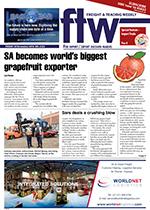Lack of regional integration and cooperation remain two of the key challenges facing African countries. Resource-rich countries have failed to exploit opportunities to drive rapid economic growth. The lack of infrastructure and human capital have been central to this – along with regional integration. According to Chelsea Markowitz, a researcher at the South African Institute of International Affairs, there has been some progress in regional integration and trade facilitation, although it has been much slower than was hoped for. “In reality it has been difficult to achieve pretty much anywhere in the world, when dealing with vastly different sized economies in a region, with different cultural, political and geographical imperatives as well,” she told FTW. “When we look at the African continent and its integration goals, I think that sometimes we downplay this reality. Developing regions that are often looked to as examples such as ASEAN are similar in economic size and physical proximity, and also have a greater cultural sense of regionalism. The ASEAN brand of deep regional integration should perhaps be seen as more of an exception rather than a blueprint.” In spite of this it remains critical that the continent improve its regional cooperation and integration. Whilst many of the Regional Economic Communities (RECs) in subSaharan Africa have achieved at least some level of functioning, non-tariff trade barriers are a reality on the continent. According to Markowitz a recent workshop looking at the improvement of regional trade through an inclusiveness lens, specifically gender equity and trade facilitation, highlighted several important factors that could speak to the broader regional integration debate. “The primary recommendation is that there is a need for continued efforts to simplify processes at the borders, especially for marginalised traders. This means directing capacity building towards expediting the process of automated customs procedures and translations into local languages,” she said. “The second is the need for continued focus on capacity building for small to medium traders in a region as they comprise a large percentage of African economic activity and crossborder trade. This can include donor and NGO technical support for product-specific activities, but also for a range of other activities involved in trade such as the usage of new technologies being implemented at borders.” She said a third important element was the need to improve support for women exporters. “Regional economic communities must factor gender considerations into their various regional integration policies and strategies, and should receive training on gender inclusivity.” Asked about the increasing move to a broader continental and multi-regional approach, Markowitz said these trade agreements were ambitious. “Many of the challenges which persist for existing RECs will be the same if not amplified on a larger scale. Most experts agree saying while the concept of greater regional reliance, especially in times of greater global uncertainty, is certainly important and valid on a practical level, for countries that are still struggling with national challenges such as the provision of electricity, it remains highly ambitious at best.
CAPTION
There is a need for continued efforts to simplify processes at the borders. – Chelsea Markowitz

